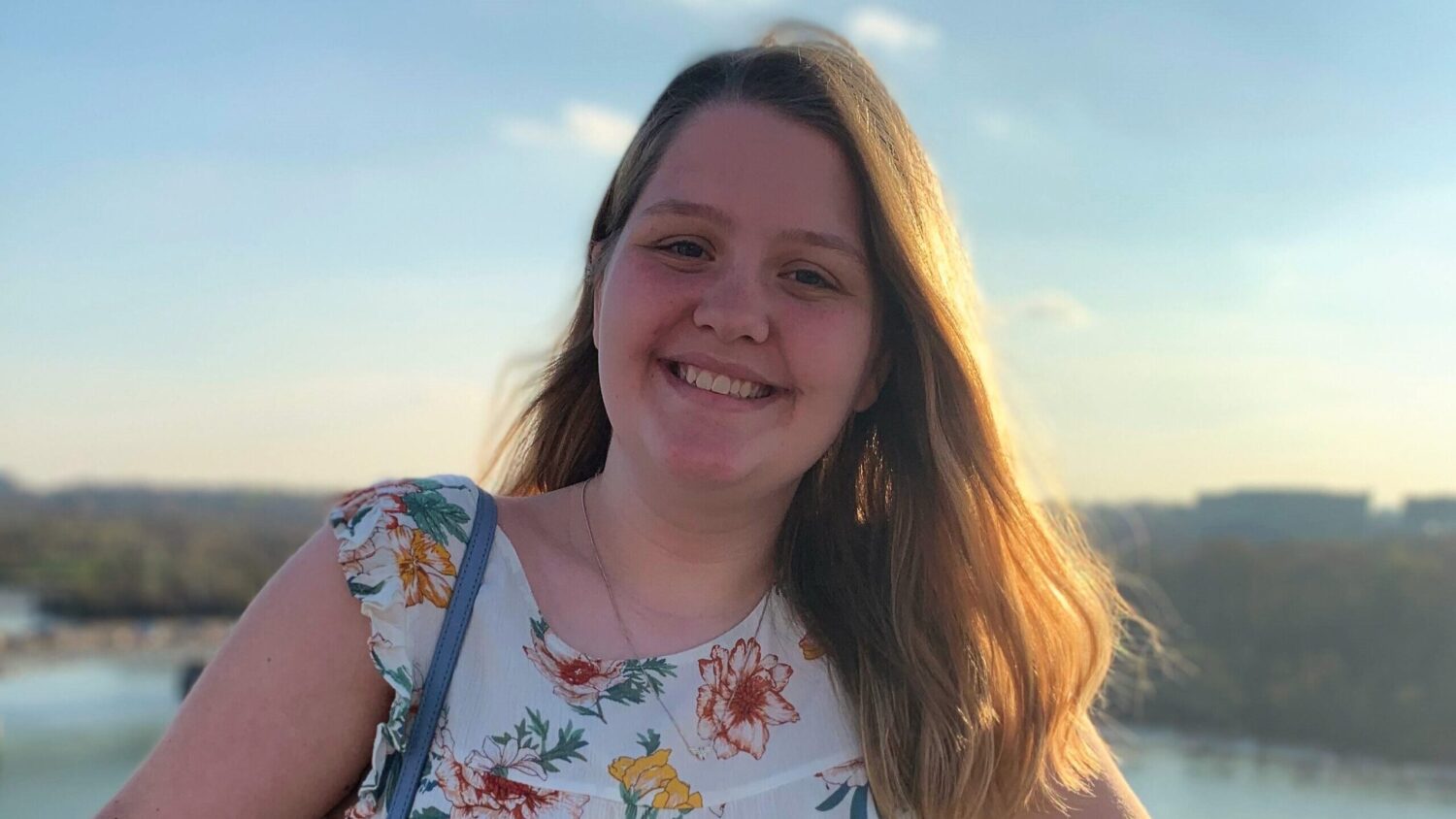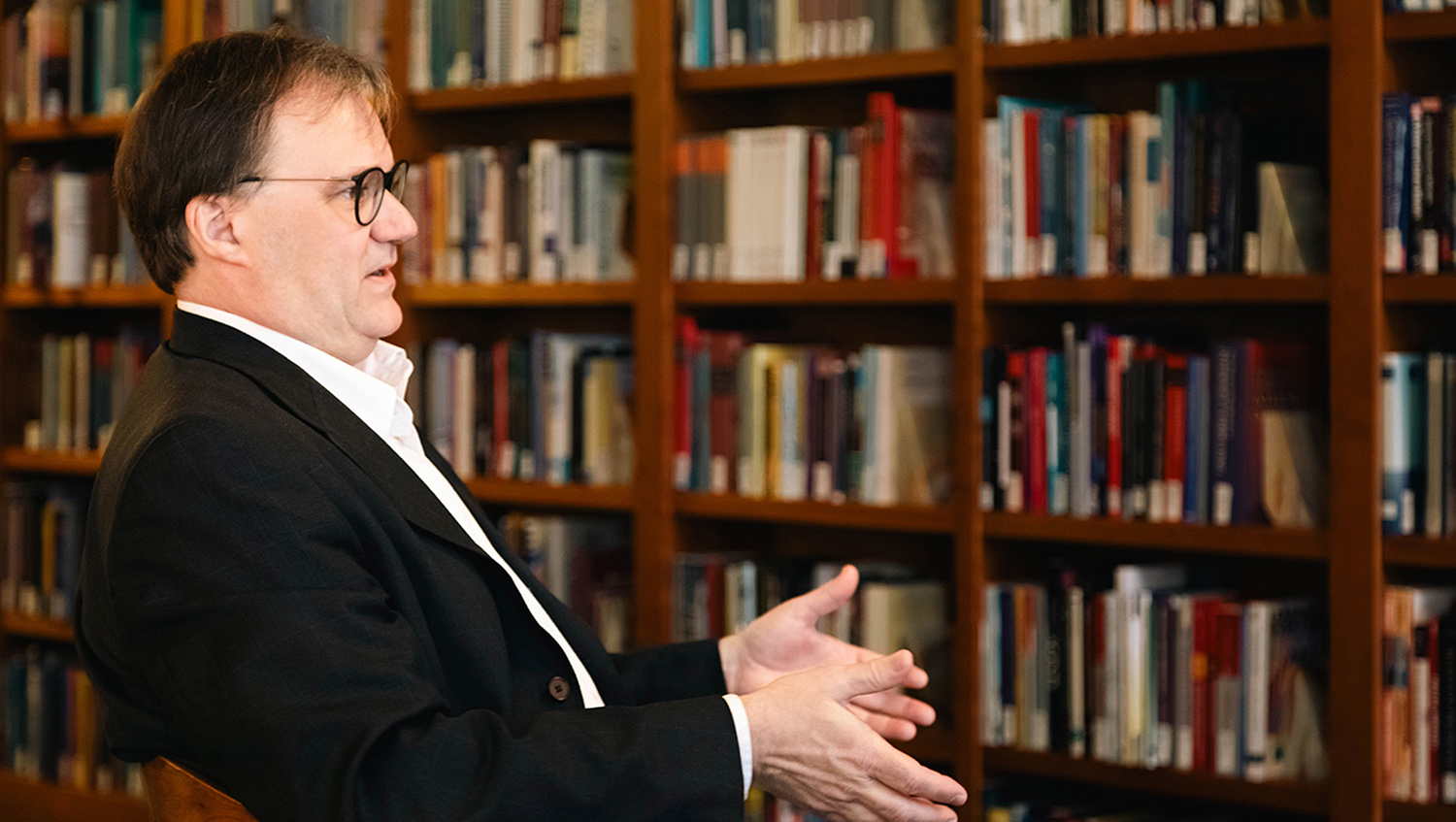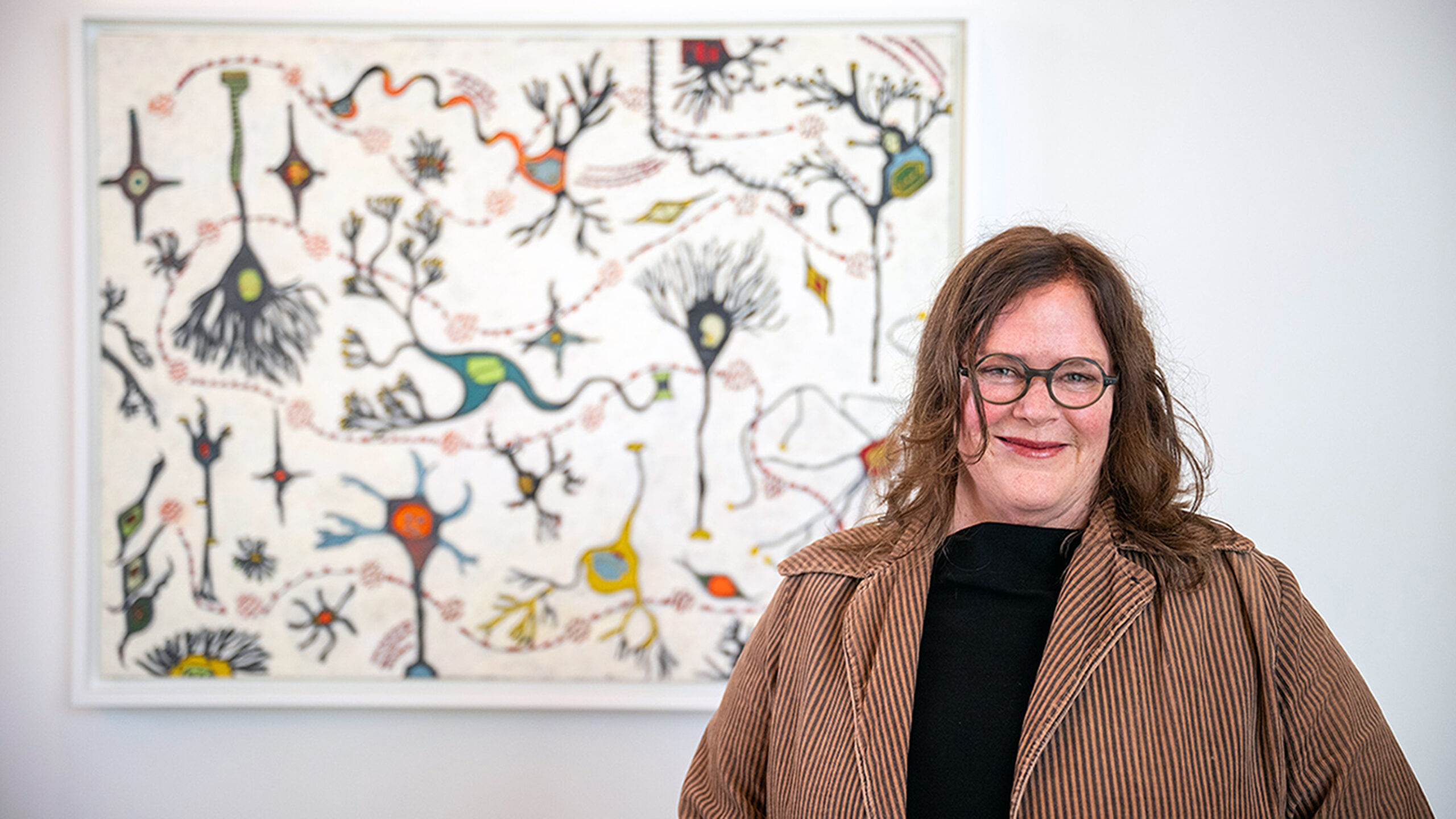Meet Andi Barker, a senior majoring in science, technology and society (STS) with minors in biology and biomanufacturing. She also works as an undergraduate researcher for professor Jeff Yoder in the Yoder Lab of Comparative Immunology.
For the past three years, Barker has helped research immune genes in fish. In 2020, she received the NC State Summer Research Grant and presented at the NC State Virtual Summer Undergraduate Research and Creativity Symposium.
We caught up with Barker to learn more about her research experience, career path, time at NC State and advice to aspiring student researchers.
Why and how did you get involved in undergraduate research?
I wanted to work on something new and gain experience in the sciences and in the application of the subjects I was studying.
However, I didn’t know how to get involved in research. In my freshman year, a friend told me that the lab where she worked would have an opening for a lab assistant since she was graduating.
Why did you choose to major in STS?
I am passionate about the sciences but also interested in the humanities. This major gives me the unique opportunity to study both and how they impact one another.
I emailed the postdoctoral researcher who worked in the lab. We met and decided I would be a good fit for the lab. I was interested in genetics and knew that what they were researching was something I would enjoy.
What are some topics you have researched and tasks you have performed?
I research an immune gene and the differences in its sequences across various fish species. To do this, I perform polymerase chain reaction (PCR) tests on fish samples and use online software like MEGAX and Genomicus to analyze the gene sequences.
In 2020, I received the NC State Summer Research Grant to continue working on my project. As a part of winning that grant, I also presented at the NC State Virtual Summer Undergraduate Research and Creativity Symposium.
That was the first time I talked about my research in a professional setting. It was an incredible experience.
What do you like most about your research experience?
I’ve been lucky to have amazing mentors. They have taught me so much and have been a great source of support for my research and college education.
They have also empowered me to do things that other undergraduate researchers may not get the chance to do. For example, I presented my research at the North American Comparative Immunology Workshop. It was both one of the best and most terrifying experiences I’ve had.
I’m truly grateful.
What have you learned from your research experience?
Nearly all my scientific knowledge and skills have come from my research experience.
Throughout the years, I’ve also learned a lot from listening to the graduate students and other members of the lab talk about their projects and what graduate school is like.
I’m a first-generation college student, so I knew little about life after college. Hearing the graduate students talk about their experiences has been helpful in deciding what I want to do after I graduate.
How has the experience impacted your time at NC State?
While I have struggled to find the right fit in a major during my NC State journey, the lab has been a constant, which has been comforting. Since working there, I switched from the life sciences first-year program with a biochemistry focus to a STS major.
Has your research experience influenced your career or educational path?
When I came to NC State, I thought I would go into biomanufacturing after graduation, but now I know my real scientific passion and interest is in research. It has also prompted me to consider graduate school more seriously. I would pursue a degree in the sciences, perhaps genetics or molecular biology.
What advice would you give to students wanting to become research assistants?
Don’t be afraid to reach out to professors running labs that spark your research interest. The worst they can do is tell you they don’t have a spot for you. However, if you never reach out, you’ll never get the opportunity.
What are your plans after graduation?
I’m still deciding. Along with considering graduate school, I may continue doing research and would love to work for a museum like the North Carolina Museum of Natural Sciences in downtown Raleigh. I may also pursue law or public policy, which focuses on the humanities component of my STS degree.



